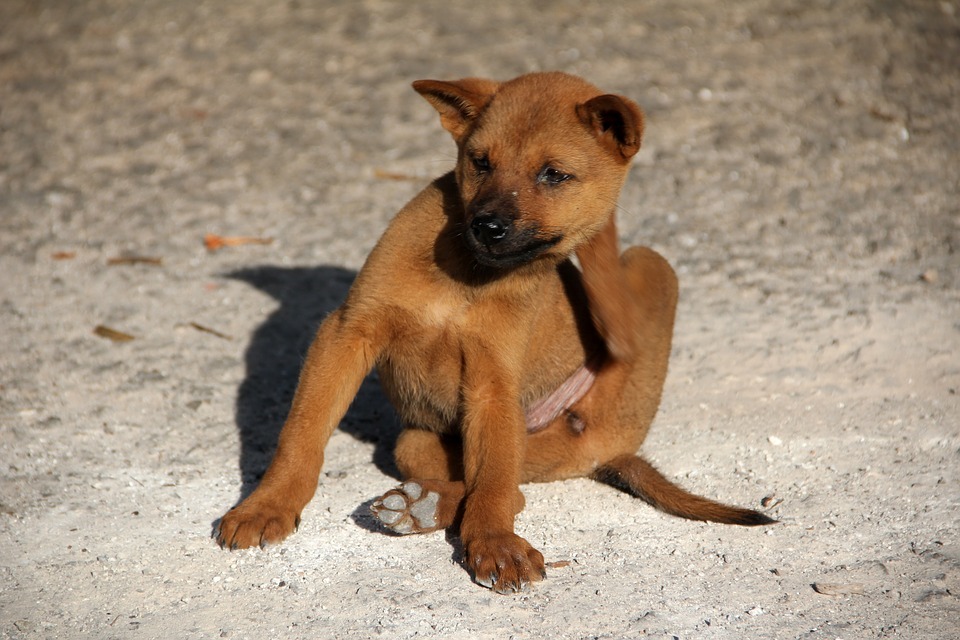Just like us humans, dogs can also suffer from allergies. Dog allergies are common, however, it can be difficult to know when they are suffering from allergies because the way we might react to a certain allergen is not necessarily the way our dogs will react. For example, if heavy pollen counts can make our eyes itch and could cause us to sneeze when it comes to our pets, it can make their feet itch or swell. So how can we know if our pets are suffering from allergies?
Since our pet dogs can’t tell us what’s bothering them, it’s up to us to look for signs and symptoms of allergies and find ways to treat them as well. If you’re worried that your pet dog might be suffering from allergies but you’re not sure about it, you no longer have to worry because we’re here to help by letting you know the signs to look for.
Causes of Allergies in Dogs
Before we go to the signs, let us know first the causes of allergies in dogs. Well, there are a number of reasons why dogs suffer from allergies and here are some of the most common allergens that they typically suffer from.
- Flea Allergy Dermatitis: This is a relatively common dog allergen. This allergy is triggered not by flea bites but by the flea’s saliva. Dogs are sensitive to the flea’s saliva and this can cause an inflammatory response. In fact, even just one flea can make your dog suffer from itchiness for weeks.
- Environmental Allergens: Like humans, dogs can also be sensitive to both indoor and outdoor allergens. They can be allergic to mold spores, dust mites, and as well as fabrics like cotton and wool. Outdoor allergens such as pollen, ragweed, and cigarette smoke can also affect them. Aside from that, chemicals used for cleaning can also irritate your pet, same with perfumes and chemicals that may be in rugs and carpets.
- Medications and Vaccines: Medicines and vaccinations can also trigger your dog’s allergies especially if they are over-vaccinated.
- Food: Dogs can also have an allergic reaction to certain foods and other added food ingredients. Some of the common foods that can trigger allergies in dogs are chicken, beef, corn, dairy, wheat, and soy.
Signs of Allergies in Dogs
Now that you know the common causes of allergies in dogs, it’s time to know the signs to look for to determine if your pet is suffering from allergies. Here are some of the common signs and symptoms of allergies in dogs.
-
Signs of Mild to Moderate Allergic Reaction
Itchiness is the most common sign of allergies in dogs. If you see your pet scratching, make sure to check them immediately, because if they are suffering from allergies and are left unchecked, it can lead to hot spots, scabbing, and skin infections. Aside from itchiness, here are some of the common signs of mild to moderate allergic reactions in dogs.
- Licking paws excessively.
- Coughing and sneezing.
- Swelling of the face, feet, and joints.
- Vomiting and diarrhea.
- Hair loss, either bald spots or all-over thinning.
- Butt-scooting and scratching.
If you notice your pet having some of these symptoms, consider how long and how severe they are. If the above reactions do not clear up after a week or two, you need to take your dog to your vet.
-
Signs of Severe Allergic Reactions
Aside from the common signs of allergies in dogs listed above, they can also suffer from severe allergic reactions to things such as drugs, certain foods, and insect stings. Here are some of the signs of extreme allergic reactions you should look out for.
- Swollen eyes and muzzle.
- Sudden gasping and difficulty in breathing.
- Rapid-onset vomiting and diarrhea.
If you find your dog suffering from any of these symptoms, bring him to the emergency veterinarian right away because having these allergic reactions can be fatal.
How to Prevent Dog Allergies?
If you find signs of allergies in your dog, there are different ways you can treat them. But the first and most basic form of treatment is prevention. If you’re certain that they are suffering from allergies, you need to remove the allergens first or keep them away from these as much as possible.
Whenever you take your dog for walks, make sure to wipe off its feet after walking to remove dirt. In fact, there are pet allergen-blocker wipes available on the market that you can use. When bathing them, it’s better to use hypoallergenic shampoos. There are also anti-itch shampoos you can use if you notice them scratching frequently.
If you suspect your pet to be suffering from food allergies, then switching to a limited-ingredient diet can help. You can consult your vet to be able to adjust the diet of your pet to prevent them from suffering from food allergies again.
Dog allergies, just like the allergies we humans suffer from, are incurable but the symptoms can be managed and can be prevented to make them more comfortable. We hope the information we shared will be able to help you look for signs of allergies in your dog. If you’re also looking for dogs’ accessories and other stuff for dogs, www.pets-menu.co.uk might help you find the best ones.


